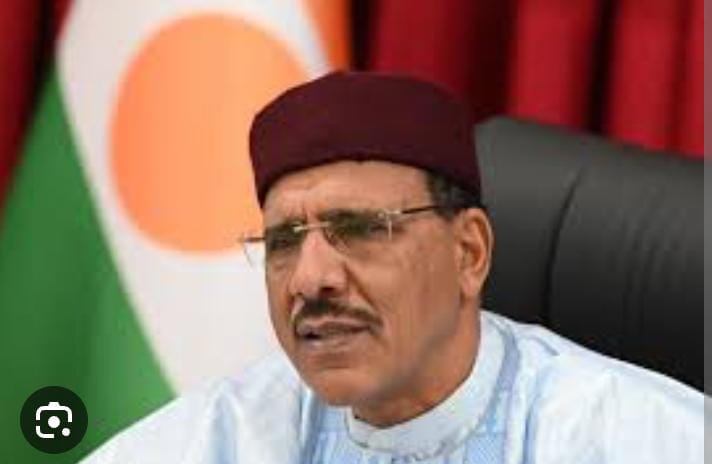By, Olubunmi Mayaki
The unfortunate overthrow of the democratically elected government of the President of Niger Republic, Mohamed Bazoum in a coup led by a certain Colonel-Major Amadou Adrammane.
Concerted efforts were made by ECOWAS leaders yesterday to resolve the political imbroglio but the talks collapsed when the junta announced the change of government.
Yet another African nation has fallen into the hands of a military coup.
I had discussed in a side talk at a forum recently with a group of political analysts of the sudden reoccurrence of coups in the African continent. I never knew another one was in the offing.
At this stage, Africans should be worried. Worried, because civil rule is being threatened once again by the craze for power by the military. A quick reminder shows that Sudan has been locked in crisis for some months now, which is a leadership tussle between the military leadership and a renegade group known as Rapid Safety Force, which is doing everything to wrestle power from the government. Efforts at resolving the crisis are yet to yield positive fruits.
There are palpable fears that it is gradually snowballing into civil war. Unfortunately, African leaders seem not to have learned from the continent’s history.
It is easier to make the military a scapegoat. However, emerging issues from different African countries would, perhaps, show that much of the blames must be put on the doorsteps of African leaders. It is important, therefore, to look at why the men in uniform have suddenly decided to seize power at this time in the continent’s history.
One, the African continent has only been gifted with a few good leaders. Most countries in Africa are plagued with bad leaders, many of who know nothing about governance. These have led to years of underdevelopment of the continent. The migrant crises in the world today attest to the fact that Africans are the highest culprit. Africa is losing its best brains to other parts of the world to seek better opportunities elsewhere.
The blame should be put on the doorsteps of African leaders for failing to do more for their citizens.
Two, most African leaders abandon their country’s constitutions as soon as they assume power. Therefore, ruling with the rule of law seems a mirage. Most governments are fraught with brazen violations of human rights and the Constitution. These often lead to one thing- crisis.
Three, African leaders are yet to be detached from the apron strings of colonialism. Foreign interests are destabilizing forces of the African continent. Why blame these foreign intrusions? They are manufacturers of weapons and they must look for markets for its ever-increasing weapon industry. It is pure logic that to sell the weapons there must be crisis. Are we still wondering why wars and crises fester in Africa?
Four, one of the major challenges of African leaders is the propagation of anti-people policies. Most policies in Africa only benefit political loyalists and elites. These breed elite conspiracy such that only those close to the seat of power or the ruling party enjoy government largesse. Many populists are thrown into untold hardships.
Five, corruption stays as a major challenge to African leaders. If we have bad roads, people dying in our hospitals, the collapse of educational systems, etc., many may not realize that they are the fingerprints of corruption.
Every opportunity in the seat of government creates an avenue to loot the country’s treasury. Of course, the bulk of the loot is stashed in foreign accounts. If we fail to tackle corruption, Africa will continue to play second fiddle in world affairs.
Six, there has been noticeable infighting among African leaders. Most of these fights are on how to share the country’s minimal proceeds from its vast wealth and resources. Anarchy can not be prevented when the commonwealth of a nation is shared by a few hands while others languish in abject destitution.
My postscript is a direct call to African leaders to allow democracy or civil rule to thrive on the continent. Every effort should be done for its populists to enjoy good governance.
If they fail to yield to the voices of reasoning the challenges we face as Africans will sadly persist.
A timely reminder that he who fails to learn from his past will become the victim of his history.
